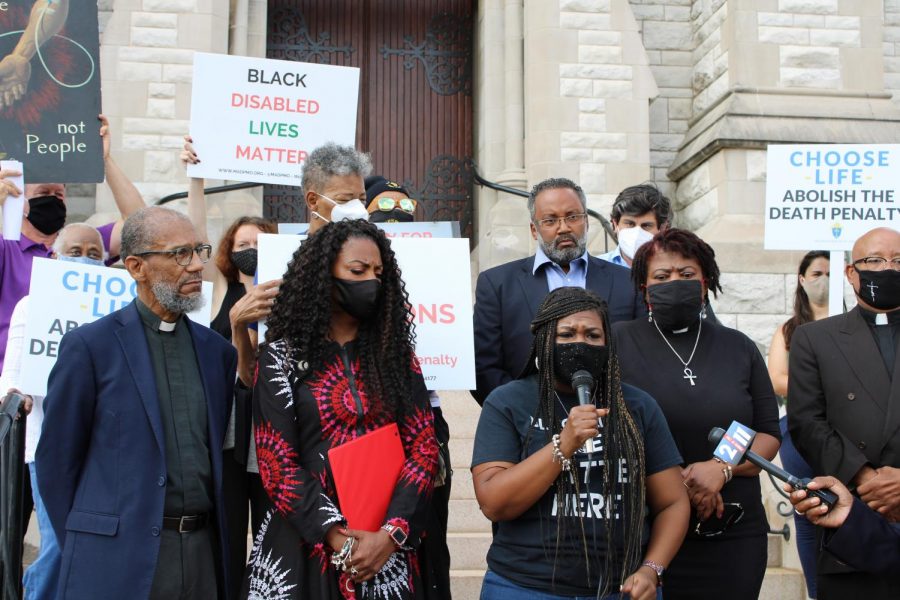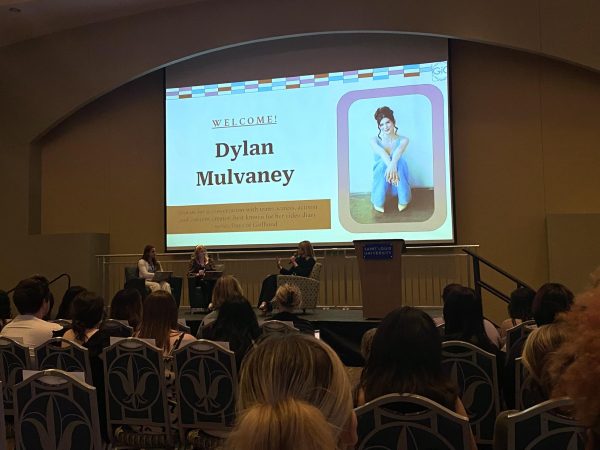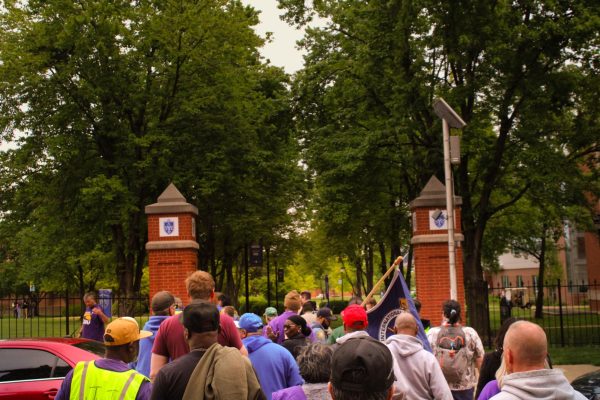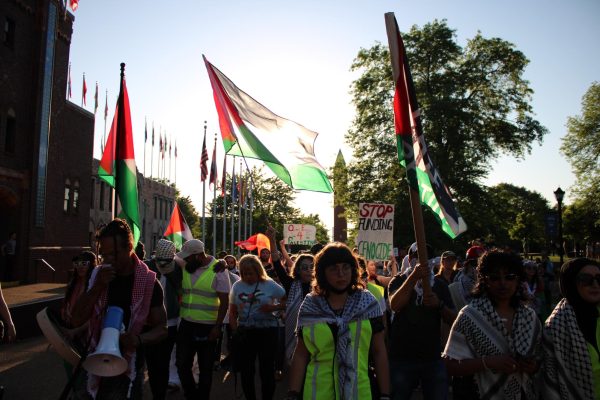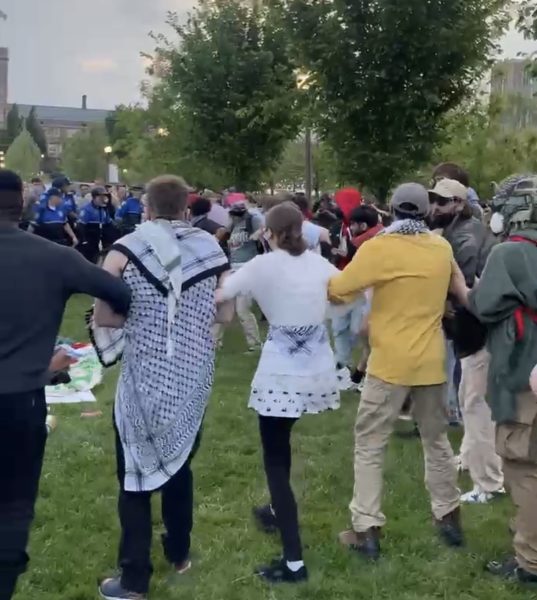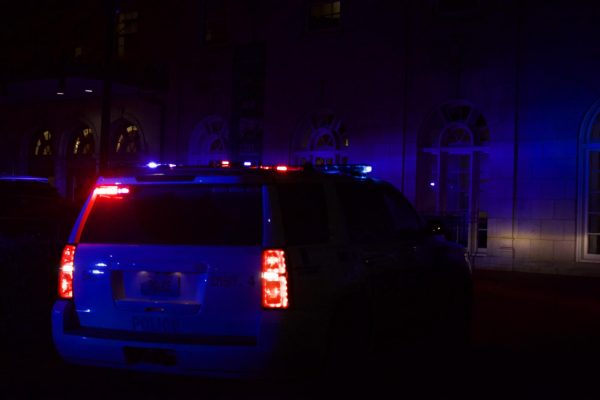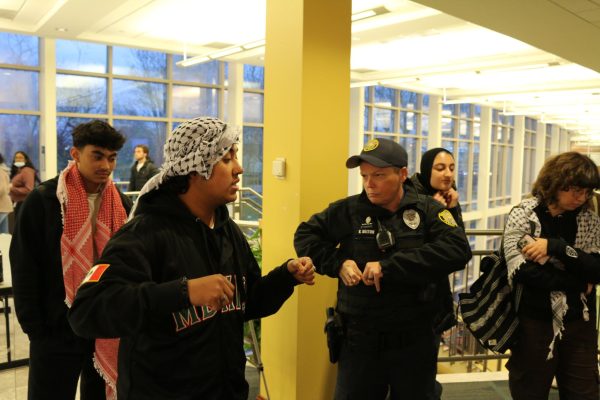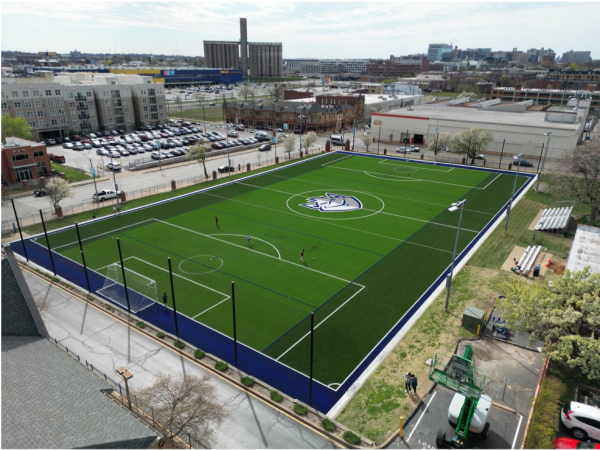Rep. Bush, Mayor Call for Stay of Execution at College Church Protest
Photo Courtesy of Abby Campbell
Faith leaders, elected officials and community members gathered at St. Francis Xavier College Church on Tuesday, Oct. 5 to protest the execution of Ernest Lee Johnson, scheduled for 6 p.m that day. Speakers included Rep. Cori Bush, Mayor Tishaura Jones, Fr. Daniel White, S.J., Rev. Darryl Gray and representatives from the ACLU, NAACP and Missourians for Alternatives to the Death Penalty (MADPMO).
The protest came after several local and national organizations, as well as high profile figures, including Pope Francis, called on Missouri Gov. Mike Parson to grant Johnson clemency.
“We are asking to have a life saved,” Bush said.“What kind of world is that that we have to ask to save a life? Guess who is in prison? Humans. They were humans when they walked in, they’re humans when they walk out. Even if you stick a needle in their arm—that’s a human.”
Johnson, an intellectually disabled Black man, was on death row for killing three convenience store workers in 1994. Activists said they understood the gravity of Johnson’s crimes, but believed that execution would compound the tragedy.
“Everyone who has spoken today has made it very clear that the murders Ernest committed were wrong,” Gray said. “We remember the families of those that were killed. A state-sanctioned murder is not justice, but it is vengeance. No crimes are deterred by the death penalty.”
In their final appeal, speakers urged Parson, a Baptist, to draw on his faith and change his decision.
“I say to Gov. Parson, as a professed Christian, as a professed Baptist: Where is your faith?” Gray said. “I am a man of faith. Where is your faith? Are ye of little faith?”
Archbishop Cristophe Pierre, a representative of Pope Francis, wrote in a letter to Parson on Sept. 27 that the pope “wishes to place before you the simple fact of Mr. Johnson’s humanity and the sacredness of all human life.”
In 1995, Pope John Paul II published an encyclical, “Evangelium Vitae,” which said the Church believed execution to be appropriate only when absolutely necessary. In a 1999 visit to St. Louis, he persuaded Gov. Mel Carnahan to stay the execution of Darrell Meese, also convicted of triple homicide. The Church’s position on execution was reaffirmed by Pope Francis, who in 2018 revised the Catechism to say that the death penalty is “an attack” on human dignity and wrong in all cases.
“The death penalty is a racist tool that punishes Black and Brown people at dispropriate rates,” Jones said. “Justice is abolition of the death penalty and sparing Ernest Johnson’s life.”
Activists said Johnson, who was born with fetal alcohol syndrome, was a victim of a society that had failed him throughout his childhood. In 2008, Johnson underwent neurosurgery to remove a tumor, resulting in him losing about 20 percent of his brain tissue. His lawyer said Johnson had an IQ between 67 and 77, meeting the state’s clinical standards to be diagnosed with an intellectual disability.
Johnson’s legal team said the execution is a violation of his Eighth Amendment rights as per the U.S. Supreme Court’s 2002 ruling in Atkins v. Virginia, which banned the death penalty for the intellectually disabled. In 2015, the Supreme Court temporarily stayed Johnson’s execution, ruling that his brain conditions put him at risk of violent seizures during lethal injection.
“This is an egregious and unconstitutional ruthless outcome from a particularly ruthless state,” ACLU of Missouri Director Luz María Henríquez said. “This state wishes to continue endorsement of a racist and vengeful system. We must abolish capital punishment. Execution is a descendent of slavery, lynching and segregation, and racism is the hallmark of the death penalty in the United States.”
Rep. Bush concluded the protest with a prayer. Bush and other activists then went to the state prison in Bonne Terre, where Johnson’s execution took place shortly after.
Your donation will support the student journalists of Saint Louis University. Your contribution will help us cover our annual website hosting costs.




